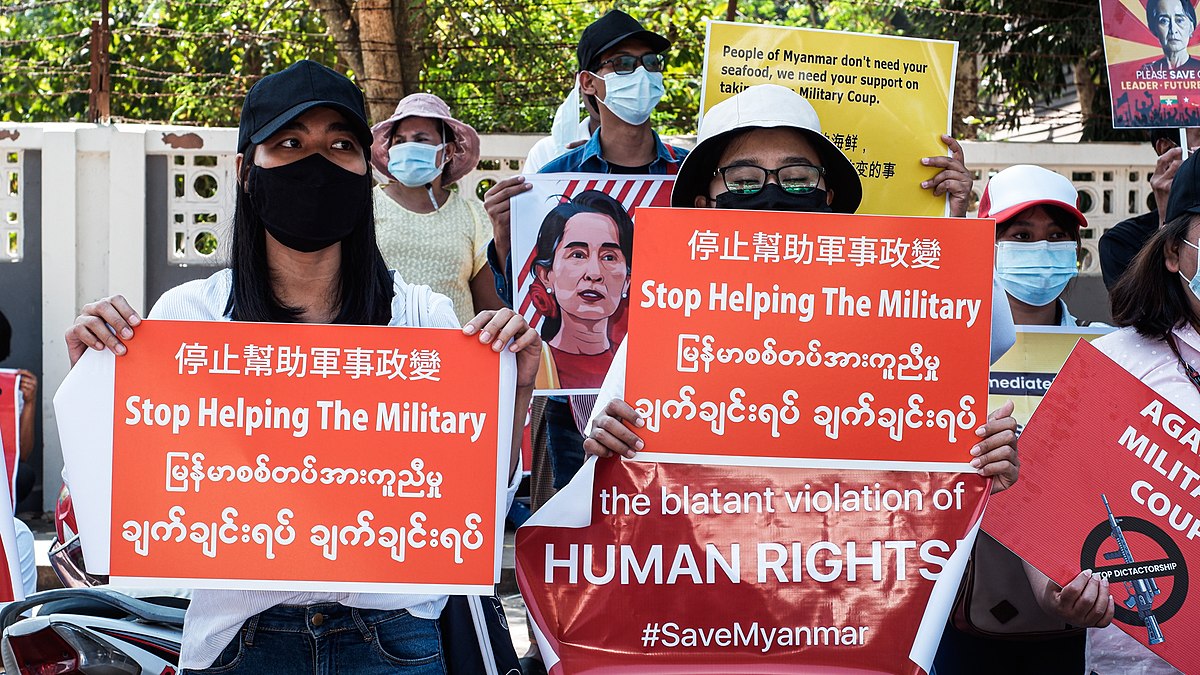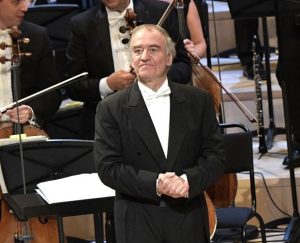26 Jul 2022 | Asia and Pacific, News and features

People protest in Myanmar against the military coup in 2021. Photo: Htin Linn Aye
The last time a political activist was hanged in Myanmar was in 1976, when the ethnic Chin student Salai Tin Maung Oo, 25, was executed for sedition. I was hoping against hope that the junta was bluffing when it announced in early June 2022 that it would go ahead with the execution of four political prisoners on death row, Phyo Zeyar Thaw, Kyaw Min Yu, Hla Myo Aung and Aung Thura Zaw.
I knew too well what the regime was capable of. Since the February 2021 coup, daily atrocities by security forces, extrajudicial killings and tortures to death of hundreds of civilians are well documented. The lives of two of my poet friends in their prime, K Za Win and Khet Thi, were cut short by the regime in March 2021 and May 2021 respectively for their leading role in the anti-coup protests.
Zeyar Thaw and Min Yu (AKA Jimmy) are big names in Myanmar. Jimmy belonged to the 1988 protest movement. He spent a total of 21 of his 53 years of life behind bars as a prisoner of conscience. Zeyar Thaw belonged to a younger generation, politicised by the 2007 Saffron Revolution, a protest led by the Myanmar monks. Myo Aung and Thura Zaw are likely to be ‘the 2021 generation.’
The original Burmese title of my poem is The Rope. I translated it into English and gratefully accepted an editorial suggestion that The Rope be retitled On the Ropes. Whatever happened to the sacrifice of all the activists since Tin Maung Oo, not to mention many nameless martyrs before and after him?
Wherever we are, we earthlings may be on the ropes against tyranny of all sorts — from dictatorships in the East and blatant lies by elected politicians in the West to ubiquitous corporate greed and hypocrisy. Because of this failure in leadership and our lack of common sense as a common species, we may as well be on the ropes against the biggest blow of our times, the climate crisis.
On the Ropes
In all manners of capital punishment
hanging is
the most hideous.
To ancient Greeks
the rope takes away more than life.
It takes away decency
even in death.
Had the Romans hanged Jesus
—instead of nailing him on a crucifix—
the Christian church wouldn’t
have had much impact.
Would you hang around
your neck an icon of a broken-neck Jesus,
hanging by the neck
on a noose?
Be it short drop, pole method,
standard, or long drop,
the hanged is condemned
to indignity.
Once the neck snaps midair
the body shits and pisses itself,
the eyes bulge,
the tongue sticks out of the mouth,
if not stuck between the lips,
bloodied and bitten.
The Klan loves to lynch their victims.
Only racist hatred justifies the rope.
Hanging cannot be accomplished
without gravity.
This makes the innocent Gaia complicit
in our human crime—
in its ferity and finality.
A version of this poem was circulated in SUSPECT newsletter on 16 June 2022.
24 Jun 2022 | News and features, Rwanda, Uganda, United Kingdom
While President Paul Kagame of Rwanda was welcoming 53 visiting heads of government to his capital, perhaps the thought went through his mind that this was a moment for self-congratulation. Once, he was an exile from a country too dangerous for people of his ethnicity. Now he stands on the world stage.
Under Kagame’s iron rule, little landlocked Rwanda, a country not much bigger than Wales and horribly scarred by civil war and genocide, was honoured to be chosen to host the 2022 Commonwealth Heads of Government Meeting, the first since the pandemic.
There have been 24 such summits, colloquially known as Chogm, which bring together components of the old British Empire, but never before has one been held in a country that had not previously experienced British rule. Until a generation ago, the boundary between anglophone and francophone Africa was where Rwanda abutted Uganda, but Kagame has shifted that boundary westward, and become a new addition to the Commonwealth family.
That is a part of the reason that his government was able to secure the deal to receive the UK’s unwanted asylum seekers, which was a coup for Kagame, despite the subsequent legal obstacles. In announcing it, Boris Johnson has lauded Rwanda as “one of the safest countries in the world”.
That remark invokes a scathing riposte from Carine Kanimba, whose father, Paul Rusesabagina, is Rwanda’s best known political prisoner. “Within Rwanda, people are not safe,” she said. “Rwandans in the Congo, where Kagame has troops, are not safe; Rwandans in other African countries are not safe. Even outside of Africa, Rwandans are not safe, and having Boris Johnson say ‘hey, I don’t care’ sets a rally bad precedent.”
There is a dark underside to Rwanda’s post-genocide history, which has been obscured by the horror of what happened over ten weeks in 1994, when Hutu extremists massacred hundreds of thousands of the Tutsi minority. Relieved that the violence has subsided, the developed world has poured aid into the country, and was willing to accept the image Kagame projects as the firm ruler who brought peace to a troubled land. In Rwanda, there are no independent media to tell a different story. President Kagame tolerates no criticism at home, and his opponents abroad have to be constantly aware that his agents might hunt them down.
Rusesabagina is the only Rwandan whose fame matches Kagame’s. He is a Hutu, who ran a hotel in Kigali in 1994, where he provided sanctuary for hundreds of Tutsi, whose lives he saved. They included two tiny children, Anaȉse and Carine Kanimba, whose Tutsi parents had been slaughtered, and whom he adopted as his daughters. His story was told in the 2004 film, Hotel Rwanda.
Rusesabagina went into exile early in Kagame’s presidency – he obtained Belgian citizenship – and became a critic of the regime. In August 2020, he was persuaded by a man he trusted, a pastor named Constantin Niyomwungere, to board a private plane bound – he thought – for Burundi. He had been tricked. The plane landed in Kigali, where Rusesabagina was seized and sentenced to 25 years in prison. A prison term that long, imposed on a man who turned 68 in June, has been aptly described by the Belgian MEP, Kathleen van Brempt, as a “de facto death sentence”.
“Constantin Niyomwungere is an agent of the Rwandan government,” Carine Kanimba claims. “He spent two years getting our father’s trust. He was told ‘you have to find a way of getting him to Rwanda’. Our father believed he was going to an exchange between bishops in Burundi.”
“The flight from Dubai to Rwanda cost 120,000 US dollars,” Anaȉse Kanimba added. “Dad was the only one in the plane, apart from the crew, and Niyomwungere.”
Rwanda is one of the poorest countries in Africa, heavily reliant on foreign aid.
No member of Rusesabagina’s family can risk being in Rwanda while Kagame is in power, so their only contact with him is a five-minute phone call, once a week, on a Friday. He tries to sound upbeat, but they know that he is struggling with health problems. He used to listen to Radio America, but now he is allowed to hear only the strictly controlled Rwandan media.
And yet, considering what they have been through, the sisters come over as remarkably cheerful. They exude confidence that their family will be reunited, citing the precedent of Nazanin Zaghari-Ratcliffe’s release from an Iranian jail, and international opinion is increasingly on their side. “One of the things we have learnt from [Nazanin’s husband] Richard Ratcliffe is to push any button, then follow on, and follow on,” Anaȉse said. “We are certain that Dad will come home.”
Their father’s arrest has been condemned by the European Parliament, and by the UN Working Group on Arbitrary Detention. On 19 May, the US State Department declared that Rusesabagina had been “wrongfully detained” – ironically, on the day after the Home Secretary Priti Patel had met Rwanda’s foreign minister in Geneva to finalise arrangements for deporting asylum seekers to Rwanda. On Tuesday, 21 June, the US House of Representatives debated a motion calling for Rusesabagina’s release. But so far, Kagame’s credibility in the eyes of the UK government is apparently intact.
“The US has taken the courageous road,” Carine remarked. “But what we are seeing from the UK is the opposite – the road of cowardice. Boris Johnson has put Kagame on a pedestal.”
“I don’t have any faith in Boris Johnson,” Anaȉse said. “But maybe Prince Charles will have the humanity and leadership to speak to Kagame.”
What they hope is that Kagame will need to make a gesture to protect his reputation, and releasing the elderly Rusesabagina would be the obvious attention grabber – but if that happens, it still leaves others in his grip, including some exceptionally courageous journalists.
In April 2020, a young journalist named Cyuma Hassan Dieudonne, also known as Dieudonne Niyonsenga, who ran a YouTube channel called Ishema TV, went out to report on conditions in the Rwandan countryside. He was arrested, held in pre-trial detention for 11 months, released, rearrested, and sentenced to seven years in prison, an outcome that Reporters Without Borders has described as “absurd and arbitrary”.
“This guy was so brave,” Carine said. “He is 29 years old, the same age as me, he went out into parts of the country and reported on Covid restrictions, police brutality and all the news the government did not want reported, that is, not about Kigali and its clean streets. His sister has visited him in prison. She says he has been treated so badly that he will probably never have children. This is the consequence of speaking out in Rwanda.”
Even those who flee abroad cannot be sure of escaping the regime’s long arm. Patrick Karegeya was one of Kagame’s comrades in the ex-pat Tutsi army who helped to overthrow Milton Obote in Uganda in 1986, and install the current long-serving president, Yoweri Museveni. With Museveni’s blessing, they invaded Rwanda. Karegeya was head of intelligence in the new regime until he clashed with Kagame, and fled, only to be murdered in a Johannesburg hotel.
The Kanimba sisters have also been harassed and spied on – particularly Carine, who lives in Belgium, while Anaȉse is further out of reach, in Texas. A senior figure in the Rwandan government used Twitter to suggest that Carine merited the ‘Golden Machete’, a sobriquet that pro-Kagame internet trolls use to denounce those they accuse of being pro-genocidaire. It is a category that seems to include anyone and everyone who has criticised the President. Michela Wrong, the British journalist whose meticulously researched book Do Not Disturb demolished the myth of Kagame, was named winner of the 2021 Golden Machete. But machetes were the weapons used to butcher the sisters’ biological parents, so suggesting that Carine deserves a Golden Machete is, at best, a sick joke.
Most frighteningly Carine has been followed in the streets of Brussels by people she believes to be Kagame’s agents, and her phone was infected last summer with the Pegasus software, enabling hackers to trace her movements and overhear her conversations.
She says: “My phone was infected 23 times. There is a person on the other side who is obsessed with knowing what I am doing.”
“It’s all Kagame. I’m a 29-year-old woman. I’m just speaking out. It’s pathetic. Kagame wants to be recognised as a hero. We are targets.
6 Jun 2022 | Belarus, News and features
 “Andrei Aliaksandrau is a merry fellow and a joker, a manager and a poet, an idealist and a pragmatist all rolled into one. He is persistent in defending his point of view, direct in his convictions and sensitive to falsehood. I didn’t like arguing with him because he’s stubborn. I always knew I could count on him because he’s honest.
“Andrei Aliaksandrau is a merry fellow and a joker, a manager and a poet, an idealist and a pragmatist all rolled into one. He is persistent in defending his point of view, direct in his convictions and sensitive to falsehood. I didn’t like arguing with him because he’s stubborn. I always knew I could count on him because he’s honest.
“Aliaksandrau is a knight, a romantic. In company he jokes and chats a lot – but it never tires. It’s fun with him.
“At one time, we gathered for poetry readings at our house. I remember once Andrei brought a jar of pickles made by his mother. They were the most delicious pickles I had ever tasted.
“It is too painful to think that now I can’t call Andrei and our friend Ales Lipai (he died in the summer of 2018) and say, “Guys, let’s get together on Saturday!” and start discussing a topic for the meeting. Aliaksandrau would not like my topic. He would suggest another one. We would have a friendly row for a while and would conclude to sort it out at the meeting place. I would say, ‘OK, Aliaksandrau. We are looking forward to you on Saturday at six!’ And I would know that Andrei would come on time.



 “Andrei Aliaksandrau is a merry fellow and a joker, a manager and a poet, an idealist and a pragmatist all rolled into one. He is persistent in defending his point of view, direct in his convictions and sensitive to falsehood. I didn’t like arguing with him because he’s stubborn. I always knew I could count on him because he’s honest.
“Andrei Aliaksandrau is a merry fellow and a joker, a manager and a poet, an idealist and a pragmatist all rolled into one. He is persistent in defending his point of view, direct in his convictions and sensitive to falsehood. I didn’t like arguing with him because he’s stubborn. I always knew I could count on him because he’s honest.